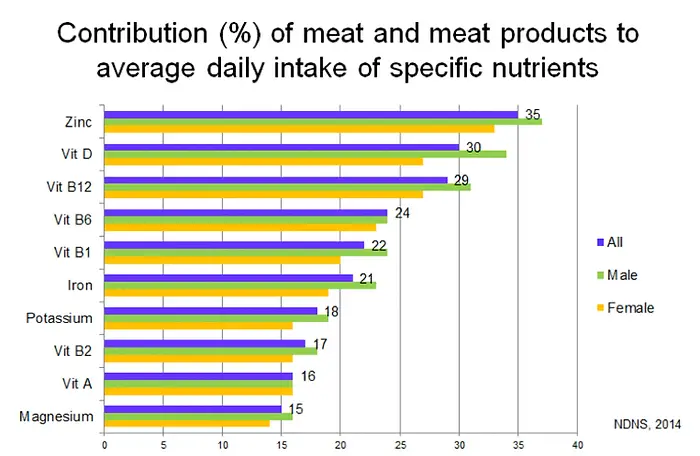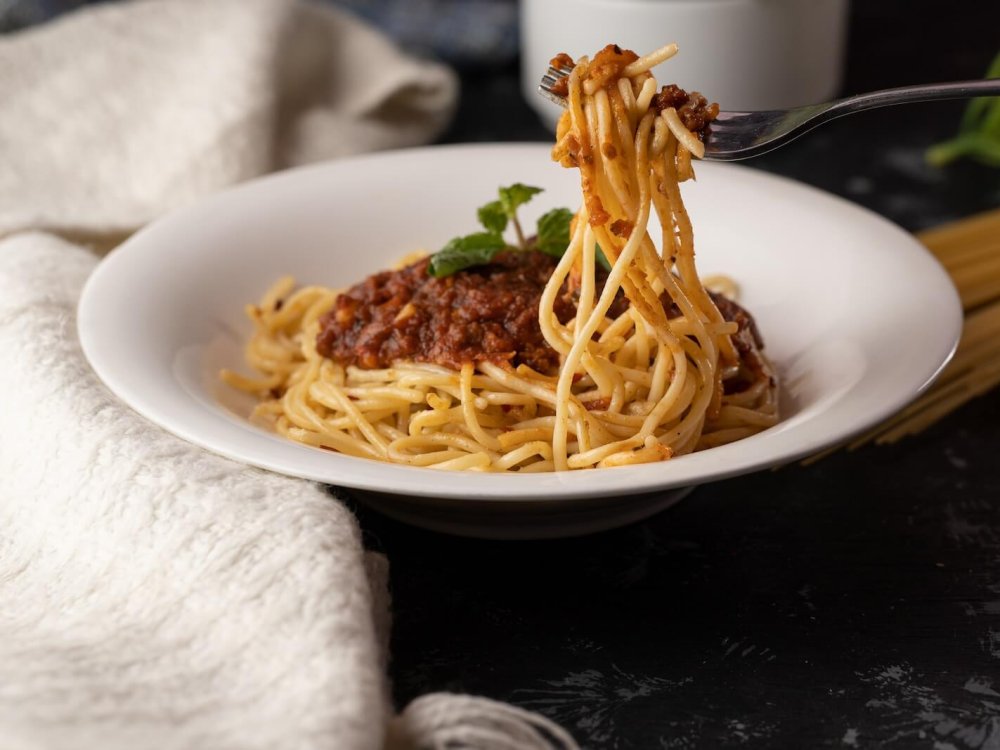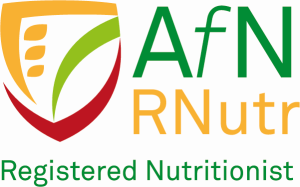Why red meat is particularly useful for some population groups?
Within the context of a healthy varied diet, red meat provides a rich source of high quality protein and a number of essential nutrients. These include: iron, zinc, selenium, vitamin D and vitamin B12. Some nutrients in red meat are more easily absorbed by the body than from non-meat food sources, and red meat can make a significant contribution to dietary intakes for some population groups.

Some nutrients found in red meat, are often found to be at low levels in the diets of particular population groups. Groups that could benefit from including red meat in their diet are:
- young infants,
- women of childbearing age and
- older adults
Young infants – When weaning, red meat is really useful to include in the complementary diet as an infant’s stores of some nutrients, like iron, start to be depleted at around six months. In practice, infants are often weaned initially onto foods such as baby rice and fruit and vegetable puree’s, and the introduction of red meat is often delayed until 8 or 9 months. This can impact on the infants iron intakes.
Well-cooked pureed lean red meat can be introduced when the baby is around 6 months old. Cooked meat juices can also be added to pureed potato and vegetables when weaning starts and then lumpier textures such as lean minced meat can be introduced from about nine months.
Women – Iron intakes in women and girls are often found to be inadequate. Young women in particular are likely to have low iron intakes for a number of reasons: their high physiological need, poor diets and unhealthy lifestyle practices such as excessive alcohol, skipping meals and low levels of physical activity.
Data from the UK’s National Diet and Nutrition Survey indicates that 54% of teenage girls (aged 11-18y) and almost a quarter (27%) of adult women (aged 19-64y) have iron intakes below the Lower Recommended Nutrient Intake (NDNS, 2018). Intakes below this level are almost certainly inadequate for most people. A lack of iron can lead to tiredness and a lack of energy, shortness of breath, poor cognitive function and a pale complexion.
A meal of spaghetti Bolognese with whole-wheat pasta will provide about half of the recommended daily intake of iron.

Older adults – Red meat is a nutrient dense food, which means it’s packed with a wide variety of nutrients in a relatively small amount of food. This is great for older adults as their appetite and total food intake tends to decrease, whilst nutrient requirements remain the same.
Red meat is useful to help maintain muscles in older people. Sarcopenia is a syndrome related to muscle wasting and a reduced muscle mass. A recent study of adults aged over 65 years who were living in the community found that 1 in 10 had sarcopenia (Jones et al., 2015). Evidence suggests that meat may help delay the development of sarcopenia as the proteins in meat contain branched-chain amino acids, such as leucine, that are essential for protein synthesis. Therefore meat proteins may be more effective than plant proteins in preventing sarcopenia.











